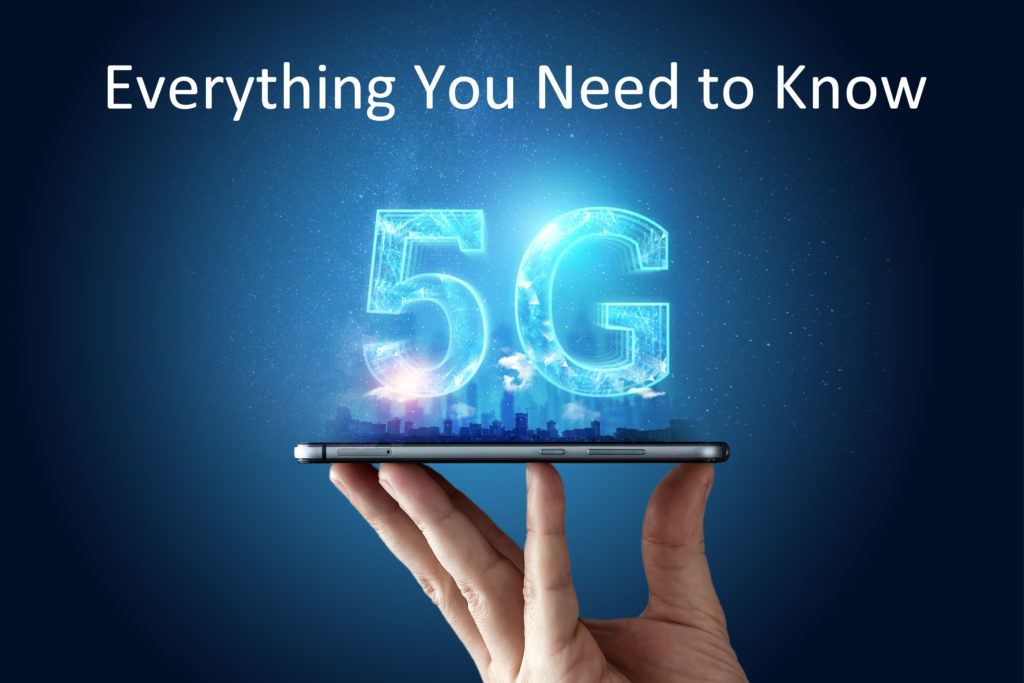
One of the biggest updates coming to mobile technology in nearly a decade is the upgrade from 4G to 5G. It promises much faster speeds, less lag time, and improved bandwidth.
How big an improvement is 5G expected to be over 4G? Fairly dramatic. Just think back to when 4G first came out at the end of 2010. Improvements over 3G were significant and included better mobile web access, ability to stream in HD over mobile, and the speed needed to support mobile cloud computing apps.
These advances have become second nature to us now, and we think nothing of using a mobile device for things like video conferencing or AR gaming. With 5G the universe of what your smart device can do will expand exponentially.
Beyond making remote surgeries possible due to the reduction in connection latency and improving the speed of remote help desk operations, what is 5G going to mean for you? Magnify247.com is answering the most asked questions!
Answering Your Questions About 5G
In just three years, in 2022, there are projected to be over 551 million 5G smartphone connections worldwide. While today we’re still in the “buzz phase” of 5G, it won’t be long before we start experiencing the benefits for ourselves.
Here are the most common questions our clients are asking about this new mobile generation.
How Much Faster Will 5G Be?
5G networks are expected to be about 20 times faster with 5G than the current generation, and some predict it will be even faster than that… by up to 100 times.
A big reason for the speed improvement is that 5G will be able to work on high-band frequencies. Current 4G technology uses the low-band spectrum which offers great area coverage but tops out speeds at about 100Mbps.It’s also quickly becomes saturated with devices.
- 4G: Below 3 GHz range
- 5G: 6 GHz to 100 GHz range
Will My Mobile Devices Respond to Apps Faster?
Do you ever have to wait on an app response or a mobile browser window to register what you’ve input on a form? It can be frustrating due to what’s called latency – commonly known as lag time – and the lower it is, the faster your device communicates and sends and receives commands.
4G latency averages 50ms, that will drop to about 1ms with 5G.
5G is expected to greatly reduce latency, down to approximately 1 millisecond (ms), meaning lightening-fast responses. This is why you hear about things like remote surgeries being possible with 5G, because it will allow the immediate connection and responses needed for that type of precision.
Will I Have Problems Connecting Multiple Devices to My 5G Signal?
No. While using your 4G phone as a hotspot can cause everyone to slow down, 5G has the ability to better handle multiple devices. This also means that if you live in an urban area, you won’t have to deal with poor bandwidth speed due to all the other phones in the area being connected to the same signal.
5G is expected to be able to handle up to 100 times more devices than 4G due to the wider bandwidth capabilities.
Imagine that 4G is a small two-lane highway. Rush hour hits and traffic slows because of all the cars trying to travel on the same two lanes. Now imagine that 5G expands that highway adding 18 more lanes, not only does that allow the current cars to travel much faster during rush hour, it can now accommodate even more cars without any slowdowns.
Do I Have to Buy a New Smartphone for 5G?
Yes, you will need a 5G compatible device to take advantage of 5G. The rollout is going to take a while, so you have some time to upgrade. Some carriers are already introducing 5G devices, like Samsung and Motorola.
When Will I Get 5G?
As with any major new technology, it’s going to take a few years for 5G to be available everywhere. Some carriers have already begin rolling it out and building the cell towers needed to deliver it. Big cities in select markets will be the first to see it, some as early as this year.
For example, AT&T announced that in 2019, it has rolled out 5G to 21-cities, including places like New York, Houston, Orlando, and Las Vegas. But even with the infrastructure in place, that doesn’t mean consumers have access quite yet.
Most people will see it being rolled out more widely throughout 2020 and beyond and it may take a few years before they start realizing all the benefits.
It’s forecast that by 2024, 40% of the world will be covered by 5G and there will be approximately 1.5 billion 5G mobile subscriptions.
5G Benefits Recap
While it seems far off now, it will just be a few years before we are used to all the 5G advances that are coming our way and rely on them in our daily lives.
- 20 to 100 times faster speeds
- Significantly lower latency (lag time)
- Broader capacity for more devices
This is going to mean a whole new generation of mobile applications that will most likely move even more of our internet and application use off computers onto tablets and smart phones and the rise of more wireless broadband services that will deliver internet to homes via 5G rather than satellite, DSL, or cable.






